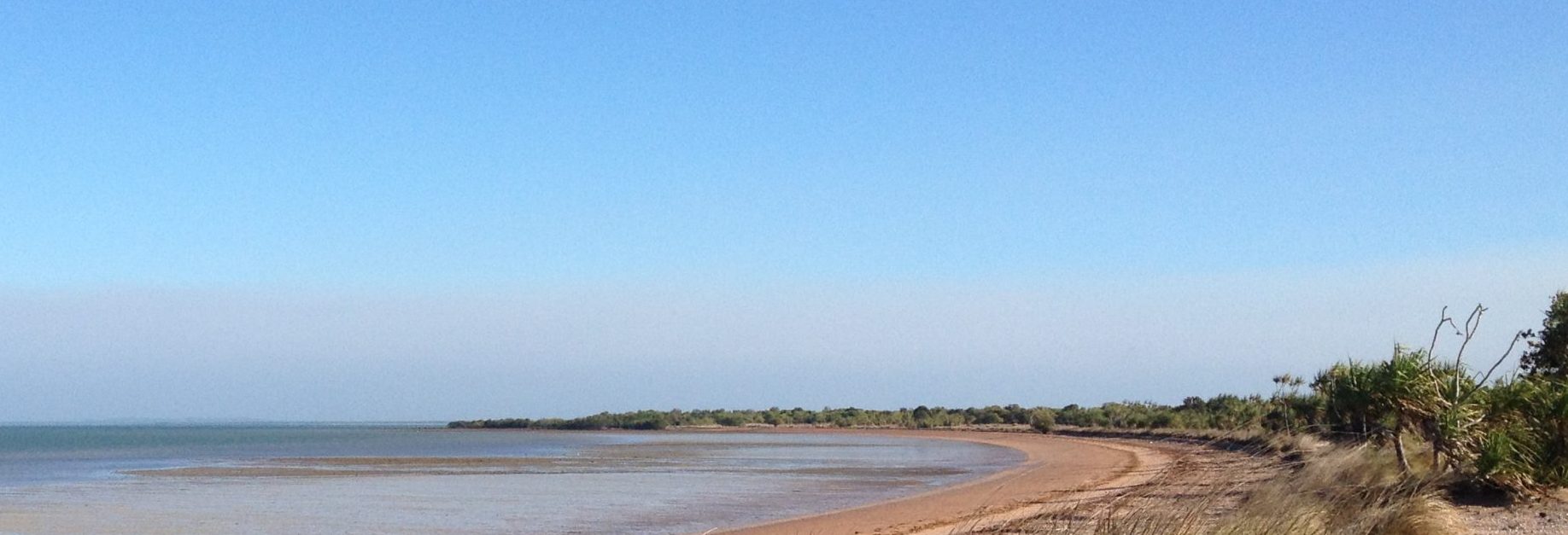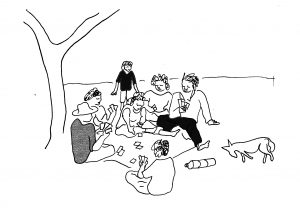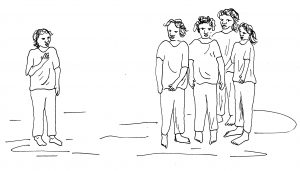Saying who we are talking about

Pronouns and Demonstratives
Hover over the green words to learn more!
There is more than one word for ‘this’ in Mawng. If you are talking about one man, you use nuka, if you are talking about one woman, you use juka. If you are talking about two or more humans, you use puka, a plural form is used mainly for humans. The shapes taken by demonstratives and articles are shown in the table below.
Mawng has three kinds of pronouns — cardinal, contrastive and oblique — as shown in the table below.
The ones people use the most are the cardinal pronouns like ngapi ‘me’ and nuyi ‘you’.
Oblique pronouns are used for many things including possession, so ngartu can mean ‘mine’ but also ‘for me’ or ‘to me’. In this table, you will see that there are different words for ‘us’ and ‘you’. Instead of just ‘us’ or ‘we’, Mawng has two different forms, the inclusive form (1pl.in) and the exclusive form (1pl.ex).

An inclusive form such as ngarrurri (1pl.in), means ‘us’ or ‘we’ including ‘you’. So if I say to you Ngarrurri arrkpana! ‘We’re going!’ it means ‘Let’s go!’, because the group that is going includes you, so you are coming too.

But if I say to you Ngarri ngatpana! ‘We’re going!’ it means that I am going somewhere with some people, but you are not coming because I have used the exclusive form of the pronoun, ngarri (1pl.ex)
Mawng Pronouns
| English | Cardinal | Contrastive | Oblique | |
| 1sg | me | ngapi | ngapimung | ngartu(k) |
| 1pl.in | us (including you) | ngarrurri | ngarrurrimung | ngarrurru |
| 1pl.ex | us (but not you) | ngarri | ngarrimung | ngarru |
| 2sg | you (one person) | nuyi | nuyimung | nuwu |
| 2pl | you (two or more people) | nuwurri | nuwurrimung | nuwurru |
| MA | he | yanat | yamin | nuyu |
| FE | she | inyanat | inyamin | ngaw |
| LL | it | anyanat | anyamin | |
| VE | it | manat | mamin | |
| ED | it | atjanat | atjamin | |
| PL | they | wenat | wemin | ‑wu ~ –pu |
© Dictionary compliation, Ruth Singer and Warruwi Community 2021. Mawng speakers own the Mawng language. They also own their knowledge of plants, animals, kinship, Mawng country, customs and history which is compiled in this dictionary.
© Dictionary compliation, Ruth Singer and Warruwi Community 2021. Mawng speakers own the Mawng language. They also own their knowledge of plants, animals, kinship, Mawng country, customs and history which is compiled in this dictionary.
